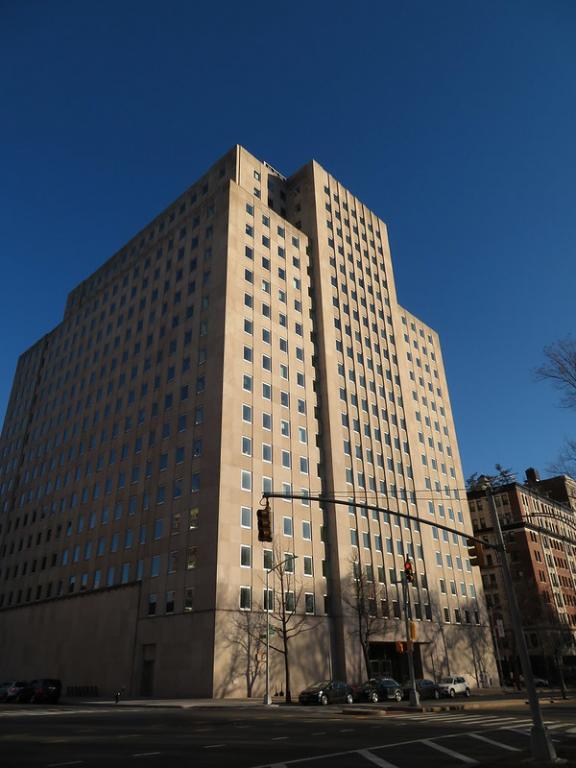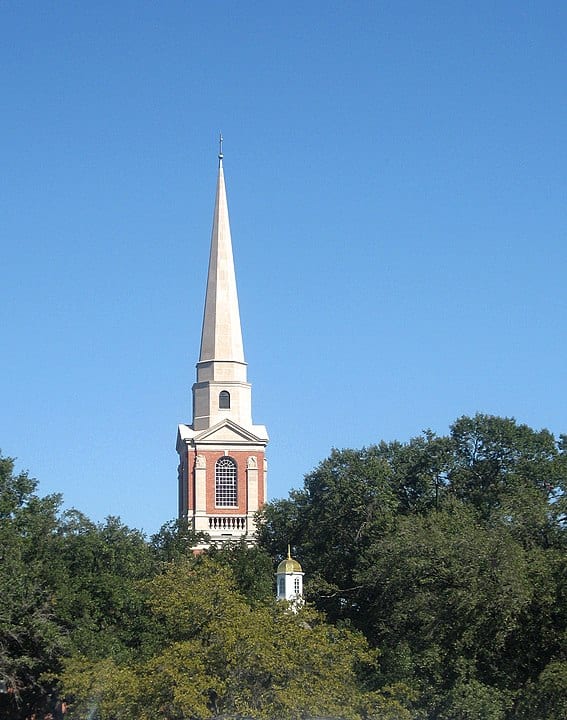Before we get too far away from the still-startling news that the popular writer and speaker Beth Moore is leaving the Southern Baptist Convention, let me come back to one detail in Bob Smietana’s story, easy to overlook:
She looked at joining another denomination, perhaps becoming a Lutheran or a Presbyterian, but in her heart, she remains Baptist.
It wasn’t that long ago that I left my evangelical denomination to join the Evangelical Lutheran Church in America — well, the ELCA church down the street — while remaining, at heart, an Evangelical Covenanter. So I couldn’t help but imagine a still-Baptist Beth Moore joining a Lutheran church like mine.
https://twitter.com/cgehrz/status/1369378891324854282
On its face — as we tend to turn these categories into caricatures — it seems unlikely. How could a theologically conservative Baptist feel at home in a congregation full of Christians sprinkled as infants, wondering how many of them actually believe all of the creed they recite (“born of the virgin Mary… the resurrection of the body…”)? Would she want to sit under the preaching of a pastor educated at a liberal seminary and overseen by a bishop?
Perhaps Moore meant that she was considering the Missouri Synod Lutheran church in Houston… but that denomination, like the SBC, doesn’t allow women to serve as pastors. Women currently make up around a third of the ELCA’s clergy (including my pastor, bishop, and the denomination’s presiding bishop) and a larger share of its seminarians. If Beth Moore wanted to take to an ELCA pulpit herself, I doubt any of that denomination’s seminary leaders — most of whom are women — would echo Al Mohler’s claim that “God intends for the preaching voice to be a male voice.” In a church like mine, the sound of a woman’s preaching voice would be neither controversial nor deployed as a distraction from the problem of sexual abuse. (Which is not unknown in the ELCA, but nowhere near the level of the scandal roiling different conservative Baptist groups.)
And given the other issues that pushed Moore out of the SBC, it may seem like a mainline church would be a likely refuge for an evangelical “woke” enough to criticize Donald Trump and talk openly about racial injustice. (Let alone read this blog.) But in the ELCA, she’d find a loudly anti-racist denomination… that’s even less racially diverse than the SBC. She’d read statements and maybe hear sermons opposing the Christian nationalism and science denialism of the Trump era… and eventually realize that a significant share of those in the pews nevertheless supported Trump and his party.

Look, I know that Beth Moore’s not joining a Lutheran church. So why bother thinking about this hypothetical?
Because I think it suggests how 20th century religious categories are increasingly inadequate to describe 21st century religious realities.
And because while I continue to anticipate that “evangelicalism will go through a painful period of realignment, as people much less famous than Beth Moore make their own choices about how they will and won’t participate in institutions like the SBC,” I also suspect that the realignment will not stop with evangelicalism. Moore’s story makes me ask more publicly a question that’s been much on my mind the last few years:
What will take the place of the mainline-evangelical divide within American Protestantism?
The very fact that I assume Protestantism will continue to be a thing — and that that word still subdivides into categories like Baptist, Lutheran, and Presbyterian — suggests that religious realignments can outlast centuries’ worth of other changes.
But they are rarely so permanent. Moore’s now-former denomination is one remnant of the sectional divide over slavery that split white Protestants before the Civil War, but went away in the 20th century. Meanwhile, late 19th century newcomers to this country sorted themselves into churches by ethnicity, not just theology, but such distinctions made less and less difference to their Americanized descendants. (The ELCA has something like twenty ancestors in its denominational family tree, starting with the German- and Scandinavian-American synods that later came together as the American Lutheran Church and Lutheran Church in America.)
It’s been something like a century now since the fundamentalist-modernist controversy gave us the familiar bifurcation of American Protestantism. That split has never been all that tidy; defining either branch has never been as simple as compiling lists of denominations. But at least for a while, the words mainline and evangelical suggested meaningful divides among Christians who couldn’t agree about questions as important as how to read the Bible, how to live out the church’s mission, or how to relate to modern culture.
Those divides haven’t gone away, but I’m not sure they’re as important as other fissures in shaping how Protestants identify and organize themselves. Isn’t it possible that we’re seeing realignment around other fault lines?

Sexuality seems like the obvious one, with the country’s largest mainline denomination on the verge of voting itself into official schism over this issue, and others (including the ELCA) already have gone through smaller versions of that split. That sorting looks different in the evangelical world, with denominations, universities, publishers, and other institutions’ gatekeepers largely toeing the conservative line and individuals, families, and congregations on the other side of it either being forced out or opting to leave. As younger evangelicals increasingly diverge from their parents and grandparents on matters of sexuality, will they simply move over to what’s left of the mainline — or could those lines start to blur?
But my Beth Moore-as-Lutheran hypothetical points more clearly to two other sources of realignment. First, over Christian nationalism…
I do not believe these are days for mincing words. I’m 63 1/2 years old & I have never seen anything in these United States of America I found more astonishingly seductive & dangerous to the saints of God than Trumpism. This Christian nationalism is not of God. Move back from it.
— Beth Moore (@BethMooreLPM) December 13, 2020
As sociologists Andrew Whitehead and Samuel Perry point out in their book, Taking America Back for God: Christian Nationalism in the United States, the evangelical-mainline divide isn’t actually the best predictor of religious political behavior in recent years: “Rather, it is the degree to which Americans—perceiving current political conflicts through the lens of Christian nationalism—wish to institutionalize conservative ‘Christian’ cultural preferences in America’s policies and self-identity.” In the age of Trump, they found that the sizable minority of mainliners who strongly advocate Christian nationalism had more in common with like-minded evangelicals than with fellow mainliners who reject the idea of America being a Christian nation. Whitehead and Perry concluded “that Christian nationalism is at least one axis upon which the restructuring of American religion has taken place.”
Another axis could be defined by views on gender. Reading the introduction to Beth Barr’s book in the wake of Beth Moore’s announcement, it wasn’t hard to imagine more and more Christians — women and men — asking why they remain within institutions that may share some of their theology, but also deny women’s gifts and calling, dismiss their concerns about misogyny and sexual assault, or demean anyone who doesn’t conform to a certain construction of gender roles.
I don’t imagine that such shifts will quickly blur or erase older lines. Competing institutions have been erected on either side of the mainline-evangelical and other divides, and institutions rarely hurry to accept their obsolescence. Most of the change will happen on the level of individuals, couples, and families — some loud, most quiet, almost all of it painful.
But one way or another, “what was done can be undone,” as Kristin Du Mez concluded her study of militant masculinity in evangelicalism. If not by reform or renewal, “undoing” can happen through realignment — as Christians start to attend different churches, consume different media, send their kids to different schools and colleges, vote for different candidates, support different causes, and identify themselves using different terms..












